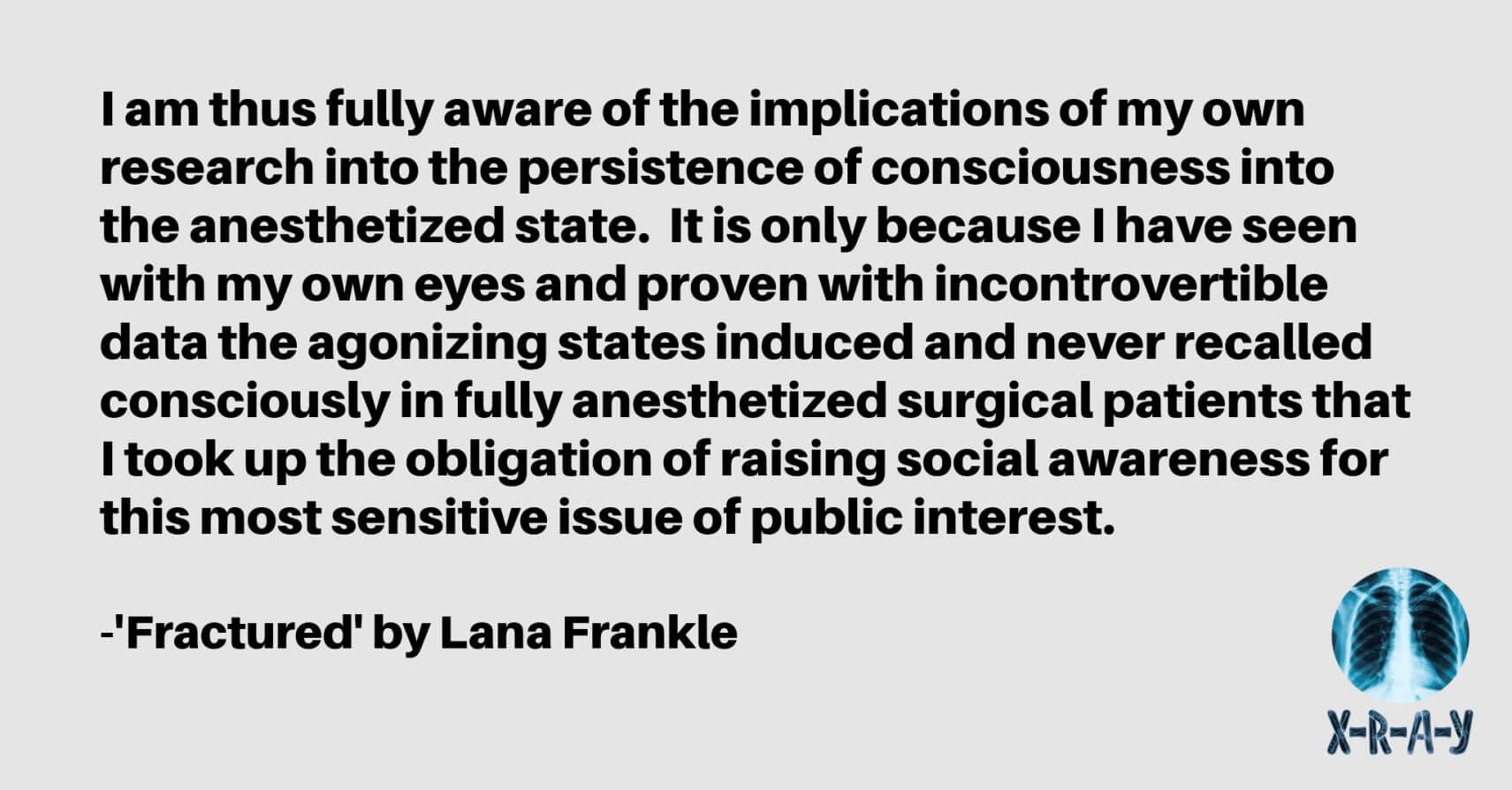The existence of a Neural Correlate of Consciousness that persists after the administration of anesthesia is such anathema to the established position taken by physicians of the modern age that publication of any supporting data has been effectively relegated to the annals of pseudoscience. This is despite the clear and alarming implications of not one but several studies attempting to chronicle the experience of the Fugue. As a man of science I at first balked, predictably: if overwhelming and conclusive evidence is rejected by the likes of Nature and Science than I as an individual bear no responsibility for its dissemination. However, I have since been prevailed upon: the public is not directly responsible for the systemic biases inherent in the academic standards that deceive them. If they are indeed active participants at all, it is indirectly. If their eyes have been blinded, and indeed even if it is through their own actions and mechanisms, it is not through any fault of their own. The public may be an agent in the dynamic, but assumptions have been made on the collective level that on the individual level are unwarranted: you, dear reader, may have done nothing wrong and still be subject to implications of the decisions of your peers. Perhaps this is not the case at all, and you will read this publication with a laugh and a sneer. But if, upon finding it here, you feel naught but surprise and betrayal, know that this is for you. That the anesthetics touted and trumpeted as groundbreaking medical technology, come at a cost that is well hidden, but that I, active in their development, am suited to deconstruct.
One thing I would like to make clear from the outset is that I fully appreciate the massive societal-level benefits imparted by the development of modern anesthetics: hundreds of thousands of life-saving surgical procedures are performed daily worldwide, and this scale of medical intervention improving the lives of millions of people would simply not be possible without them. It is no overstatement to say that our human ability to self-repair our own physiology has been instrumental in allowing us to control the tide of our own evolution as a species. I am thus fully aware of the implications of my own research into the persistence of consciousness into the anesthetized state. It is only because I have seen with my own eyes and proven with incontrovertible data the agonizing states induced and never recalled consciously in fully anesthetized surgical patients that I took up the obligation of raising social awareness for this most sensitive issue of public interest.
Given this knowledge, it is still not imminently clear which is the most optimal course for setting policy or making individual decisions regarding surgical procedures – the vast majority of which, including technically “elective” procedures, are done for sound and necessary medical reasons and cannot be forgone without drastic health consequences up to and including death. Some fairly straightforward implications, however, include ones for surgery done for purely aesthetic reasons, as well as implications on health decisions underscoring the importance of maintaining physical health through lifestyle to pre-empt the need for eventual surgery altogether. The more interesting and difficult cases are ones in which surgery has already been medically advised, but would involve inducing extreme pain in a phi network that will not be able to communicate this either during or after the experience, but would fail to provide ongoing active consent were they able.
Ultimately, the NCC in question has no means of exercising their legal rights, bodily autonomy [sic], or freedom of choice, and no recourse to protect or represent their own interests. While this matter warrants legal and not just clinical expertise and consultation, there does seem to be a precedent for the protection of conscious entities not reliant on their integrated personhood – Cleever vs. the state of California and Scober vs. the State of Indiana can be here referred to, albeit the relevance of a criminal punishment in cases of insanity or incompetence may supersede the relevance of any protections relevant due to Markovian or causal independence.
Because these NCCs have no way of prosecuting such a case, protections would need to be implemented on their behalf – as is already done in cases of abortion and life support of comatose or vegetative individuals. It is my firm belief that this direction should be explored by libertarian and other relevant ideological organizations and think tanks, and I will gladly offer my guidance for them to do so should they request it.

